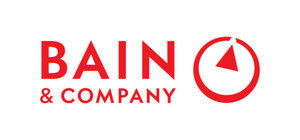
BOSTON, Nov. 12, 2025 /PRNewswire/ -- Manufacturing executives say circularity is rising in importance in their profitable growth strategies, but their supply chain capabilities are preventing them from reaping all expected benefits, according to a new report released today by Bain & Company, the World Economic Forum and the University of Cambridge.
In a global survey of 491 executives across 10 manufacturing-centric industries, 79% of respondents say circularity is crucial for their business today, yet only 20% consider their circular supply chain capabilities fit for purpose. The findings highlight the urgency – and opportunity – for companies to close this execution gap and scale circular operations that drive growth, resilience and profitability.
Additionally, 95% of executives said circularity will be important to their organizations within three years, while over two-thirds rate it as "very important". Eighty percent of respondents expect circular-revenue growth to exceed company averages, while 70% anticipate higher margin growth from circular activities than from linear ones. These results reinforce that circularity is becoming a decisive factor for competitive advantage, for navigating increasingly critical resource challenges, and for lifelong customer intimacy.
"The question is no longer whether circularity matters but how it can be implemented at scale," said Xavier Houot, partner in the Sustainability & Responsibility practice at Bain & Company. "For business leaders, that means moving beyond incremental initiatives to embed circularity at the heart of strategy, operations and customer engagement."
According to the report, barriers to scaling circular supply chains fall into five main categories:
- Operations and logistics: Companies struggle with low availability of secondary materials or used products, varying return quality, costly reverse logistics and processing complexity.
- Business opportunity and profitability: High upfront operating costs, uncertain demand and insufficient revenues can make profitability feel elusive.
- Technology, data and infrastructure: Weak reverse-logistics networks, poor data systems and limited digital tracking hinder transparency and efficiency.
- Organization: Skill gaps, partner incentivization challenges and internal resistance that hinder progress.
- Regulation: Cross-border restrictions, conflicting product and waste standards and inconsistent rules on refurbished or remanufactured goods create costly bottlenecks.
To overcome these challenges, the report outlines three strategic steps leading companies adopt for scaling circular supply chains:
- Setting clear priorities: Focus on products with higher residual value and more predictable return flows, and target customer segments open to circular offers.
- Design hybrid supply chains: Combine linear and circular flows in hybrid models. Findings from the survey showed that 56% of companies reported mostly integrated supply chains, while only 5% run fully independent ones.
- Activate key enablers: The report highlights four catalysts for scaling: 1) Technology and data including digital tracking, IoT and AI to connect installed base and manage unpredictable flows 2) People and culture, by building circularity into governance, skills and rewards 3) Finance and investments covering start-up costs and supporting medium-term returns 4) Policy and regulation including creating consistent frameworks and market incentives.
"Businesses increasingly see the economic potential of circularity, but scaling their supply chains remains complex. Those that set clear priorities and build the right design can turn circularity into a source of growth and resilience," concluded Hernán Sáenz, senior partner and chairman of Bain's Performance Improvement practice.
Media contacts:
Dan Pinkney (Boston) — [email protected]
Gary Duncan (London) — [email protected]
Ann Lee (Singapore) — [email protected]
About Bain & Company
Bain & Company is a global consultancy that helps the world's most ambitious change makers define the future.
Across 65 cities in 40 countries, we work alongside our clients as one team with a shared ambition to achieve extraordinary results, outperform the competition, and redefine industries. We complement our tailored, integrated expertise with a vibrant ecosystem of digital innovators to deliver better, faster, and more enduring outcomes. Our 10-year commitment to invest more than $1 billion in pro bono services brings our talent, expertise, and insight to organizations tackling today's urgent challenges in education, racial equity, social justice, economic development, and the environment. We earned a platinum rating from EcoVadis, the leading platform for environmental, social, and ethical performance ratings for global supply chains, putting us in the top 1% of all companies. Since our founding in 1973, we have measured our success by the success of our clients, and we proudly maintain the highest level of client advocacy in the industry.
SOURCE Bain & Company







Share this article